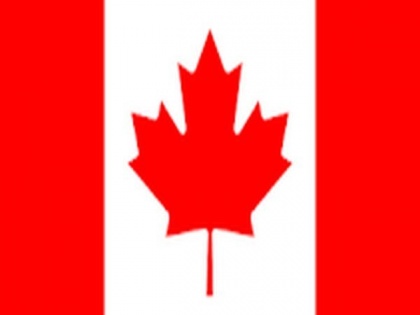Canadians refuse improved relations with China until detained compatriots freed: Poll
By ANI | Published: March 17, 2021 11:28 AM2021-03-17T11:28:51+5:302021-03-17T11:35:07+5:30
An overwhelming majority of Canadians say there can be no improvement in bilateral relations with China until two of their compatriots held in detention in the country are released, an Angus Reid Institute poll has revealed.

Canadians refuse improved relations with China until detained compatriots freed: Poll
An overwhelming majority of Canadians say there can be no improvement in bilateral relations with China until two of their compatriots held in detention in the country are released, an Angus Reid Institute poll has revealed.
As of Tuesday, Canadian nationals - former diplomat Michael Kovrig and businessman Michael Spavor - have been in Chinese detention for over 800 days on espionage charges.
Ottawa, however, maintains that these are retaliatory measures for Canada's detention of Huawei Chief Financial Officer Meng Wanzhou, who was detained in Vancouver in 2018 at the request of the United States.
"Canadians are overwhelmingly of the view that Canada and China cannot break this diplomatic impasse without Kovrig and Spavor both being released. Three-quarters (77%) say that until this happens the relationship will be strained. Few disagree, while 13 per cent are unsure," the poll said on Tuesday.
Additionally, nearly three-quarters of Canadians - 74 percent - say that China's actions with respect to the Uyghurs in Xinjiang province should be called as genocide. Canada's House of Commons overwhelmingly adopted a motion last month calling on the Trudeau government to declare China's counter-radicalization program a genocide, as reported by Sputnik.
The poll also found that the Canadian public by a 62 percent margin believes that federal authorities should prohibit Chinese investment in "sensitive industries," such as finance and telecommunications. Fifty-five percent of respondents supported a Canadian boycott of the 2022 Winter Olympics in Beijing.
Overall, only 14 percent of Canadians currently hold a favourable view of China, according to the poll.
Sino-Canadian relations soured after the arrest of Meng and two Canadian nationals in China - former diplomat Michael Kovrig and businessman Michael Spavor - on charges of espionage and have been further exacerbated by Ottawa's condemnation of Beijing's national security law implemented in Hong Kong and alleged human rights abuses in Xinjiang province.
Both Beijing and Ottawa view the detention of their nationals as a political incident. Chinese officials have claimed that Canada's deference to US foreign policy served as a catalyst for the growing diplomatic rift.
Canadian nationals Michael Kovrig and Michael Spavor, who were prosecuted by the procuratorates in China for suspected crimes undermining China's national security, will soon be tried, a source said.
According to Global Times, the Chinese Foreign Ministry spokespersons have reiterated the status of both cases addressing Kovrig and Spavor and China's judicial authorities have released information about the cases.
"Kovrig was accused of having used an ordinary passport and business visa to enter China to steal sensitive information and intelligence through contacts in China since 2017, while Spavor was accused of being a key source of intelligence for Kovrig," the Chinese government mouthpiece reported.
Beijing was incensed over Meng's arrest and demanded her immediate release, but Canada did not comply. Ten days later, Kovrig and Spavor were arrested. The pair have languished in jail for 18 months without official charges.
Earlier, US Secretary of State Antony Blinken said the international community must "stand against" arbitrary detention as a bargaining chip in international relations. "It's completely unacceptable. And it's already prohibited under international human rights conventions. But some countries still do it, and we as a global community have to stand against it," he said.
( With inputs from ANI )
Disclaimer: This post has been auto-published from an agency feed without any modifications to the text and has not been reviewed by an editor
Open in app